Description
Product Overview
There aren’t many digital pianos that can endure a five-year production run and remain just as popular in year one as in year five. The Kawai ES-110 was an exception to this rule, remaining a key player in the sub $1,000 88-key weighted portable digital piano category for its entire production cycle due to its extremely musical combination of tone and touch, along with an ultra transportable 26lb cabinet available at an economical price point.
It’s no small feat for a digital piano to have such a lengthy and consistent production run, but after 5 years, it’s no slight on the ES-110 to say it was due for a refresher. Waiting until NAMM 2022 to unveil the news, Kawai finally announced a successor to the ES-110 with the next generation Kawai ES-120 becoming official.
Kawai actually announced a handful of next-generation products at NAMM 2022, but none have as exhaustive a list of upgrades as does the ES120, due both to the ES110’s long production run but also to how important a role the ES120 will play in Kawai’s lineup, and the digital piano market as a whole.
The ES110 was known above all for its class-leading sound, and the ES120 brings back the Harmonic Imaging engine 88-key stereo sampling, but they’ve added the Shigeru Kawai SK EX Concert Grand piano sample to function as the instrument‘s core acoustic piano sound, alongside seven additional grand piano and upright piano patches with 25 total sounds across all types, expanded from 19 on the ES110.
The Responsive Hammer Compact action returns, but this version features improved key cushioning for a more authentic feel that even seasoned pianists will love. The speaker system has almost 50% more speaker power going from 14 watts of total power on the ES110 to 20 watts on the ES120. Not only does this allow you to push the volume, but it also brings out more nuance and complexity from the sound engine.
Bluetooth MIDI returns, but now also offers Bluetooth Audio, meaning you can stream your favourite music from a smart device directly through the ES120’s onboard speaker system.
Capping everything off is a revamped cabinet design with a greatly improved control panel for swifter navigation of the ES120’s built-in features. And somehow, they’ve kept the weight the same at 26.5lbs making the ES120 wonderfully easy from a transportation perspective, but they’re still offering the HML designer stand and optional triple pedal system for those who won’t be taking their ES120 out of the house often.
From top to bottom, the ES120 is a whole new instrument and a worthy entry point to Kawai’s wonderfully popular ES series.
Harmonic Imaging (HI) Sound Engine
The ES120 is once again equipped with Kawai’s Harmonic Imaging sound engine, or HI for short. This is a sample-based sound engine, and what makes it unique for the price point is the fact that it features 88-key individual note stereo sampling. Most sound engines at this price feature simpler forms of sampling, however, 88-key sampling ensures the most authentic playing experience.
The core EX concert grand sample of the ES110 is present, but its spot as the highlighted default sample has been usurped by the SK-EX sample – a stereo recording of Kawai’s legendary flagship Shigeru Kawai SKEX which adorns many of the world‘s finest concert halls. This is a really nice upgrade that we were thrilled to see.
192 Polyphony
The ES120 features 192 notes of polyphony, and that’s going to be more than sufficient for just about all use cases. In fact, 88-note polyphony is more than enough for solo piano playing, but 192 ensures that even with layering and adding effects you won’t have notes disappearing from the mix.
Improved Speaker System
For its price and weight, the ES110’s 14 watts of speaker power was just fine. Despite maintaining the weight at an impressive 26.5lbs, Kawai has managed to beef the speaker power up to 20 watts! This is extremely impressive for an instrument of this size and increases the threshold before an amplifier is required for even more juice.
Low Volume Balance
A new Low Volume Balance feature which has been appearing in other Kawai digital pianos automatically EQ’s the sound engine when playing at lower volume levels to ensure optimal sound.
Virtual Technician via PianoRemote App
Simply download Kawai’s excellent new PianoRemote app to the Bluetooth-enabled iOS or Android smart device of your choice, pair it with the ES120, and you have access to Kawai’s vaunted Virtual Technician feature which allows you to edit up to 17 different sound-related parameters.
The ES120 sounds great right out of the box, but if you’re the type who likes to tinker with and customize your piano sound, you have the ability to dive deep and tweak things like damper resonance, touch curve and voicing. There are also 6 reverb types to choose from.
25 On-board Sounds
Where the ES110 has 19 built-in sounds, the ES120 has been expanded to offer 25 total onboard sounds including killer electric pianos, strings, pads and more. While 25 sounds of course isn’t approaching a true pro stage piano quantity, for the price point, this is more than solid and a welcome upgrade.
Improved Responsive Hammer Compact Keyboard Action
Kawai has brought back the Responsive Hammer Compact 88-key action (RHC) but this is a new and improved version. It’s still of course grade weighted and touch-sensitive, but they have improved the key cushioning.
The result is a more realistic key touch that better resembles an acoustic piano by allowing the player to dig in further.
This is a great activity for a beginner to learn piano on for the first time as they’ll be able to build technique and a sense of control, but experienced players will enjoy this action too. Along with the Roland PHA4 action, the RHC is one of the better plastic key actions available in the class.
Connectivity
The ES120 has a solid and serviceable array of connectivity options. Dual headphone jacks, so two people can play/listen at the same time, is a really nice touch that will be appreciated in homes all over the world.
There’s also the ever-important 1/4” L/MONO, R line out for connecting the ES120 to an amplifier or PA system. Discreet line outputs are really a litmus test for whether a digital piano is truly gig-worthy or not.
There’s also USB-MIDI and ports for a damper pedal and the optional triple pedal system.
Bluetooth MIDI & Bluetooth Audio
The ES110 was one of the first portable pianos in the price point to feature Bluetooth MIDI. Since that time, most of the industry has followed suite and some even offer Bluetooth Audio. Not to be outdone, Kawai has also outfitted the ES120 with Bluetooth Audio.
The aforementioned PianoRemote app is a must-try, as is the extensive PiaBookPlayer app.
Other Features
The ES129 features a full complement of education and entertaining features sure to satisfy students, hobbyists and those seeking a great practice instrument.
A built-in song recorder, metronome, split mode and over 100 unique drum rhythms are just some of the features you’ll find here.
Conclusions
If there’s any doubt after reading through this product description let us spell it out – the ES120 is an extremely impressive 88-note weighted action portable digital piano that represents a meaningful improvement on the near-legendary ES110.
Whether you’re shopping for a young beginner, a hobbyist or an experienced player looking for a great practice companion, the ES120 is a versatile, lightweight beast with class-leading tone and touch.
Kawai ES120 Related Resources
- Kawai ES-120, Kawai CN201 & Kawai CN301
Specs
| Keyboard | 88 keys, Tri-sensor Scaled Hammer Action Keyboard Ⅱ, Simulated ebony and ivory keys, 3 sensitivity levels, |
| Tones | Sound Source : Multi-dimensional Morphing AiR Polyphony (maximum) : 128 Number of Built-in Tones : 19 |
| Simulator | Hammer Response, Damper Resonance, Damper Noise – (ON / OFF) |
| Digital Effects | Hall Simulator / Reverb – 4 (Reverb), Chorus – 4, Brilliance – (-3 ~ 0 ~ 3), DSP – (Preset for some tones) |
| Songs | Concert Play – 10 songs, Controller – Start / Stop, Mode – Listen / Lesson / Play, Music Library – 60 Songs, Song Expansion (User Songs) – 10 songs (max.) Up to approximately 90 KB / song |
| Additional Features | Connection to app, Lesson Function – Part ON / OFF, Lesson Part Select – Right hand, Left hand, MIDI Recorder – 2 tracks, 1 song, Approximate Data Capacity – Approximately 5,000 notes total, Duet Mode, Octave Shift – ±2 octaves, Metronome – 0 to 9 beats; tempo range : 20 to 255, Pedals – 3 built-in pedals (damper, soft, sostenuto) |
| Key Transpose | 2 octaves (-12 semitones ~ 0 ~ +12 semitones) |
| Tuning Control | A4 = 415.5 Hz ~ 440.0 Hz ~ 465.9 Hz |
| Number of Preset Temperaments | 17 |
| Others | ・GRAND PIANO 1 button ・ELEC PIANO button ・Slide-type keyboard cover ・Auto Power Off: Off after approx. 4 idle hours (default setting) |
| Connectivity and Storage | PHONES/OUTPUT, Connector for 3-Pedal Unit, USB TO HOST |
| Speakers Size | 4.72″ x 2 |
| Speakers System | 2-Speaker |
| Amplifiers | 8 W + 8 W |
| Dimensions | 54.76″ x 11.77″ x 31.42″ |
| Weight | 69.45 lbs |
| Included Accessories | AC Adaptor, Music Stand |
Additional Information
| Weight | 84 lbs |
|---|---|
| Dimensions | 60 × 16 × 16 in |

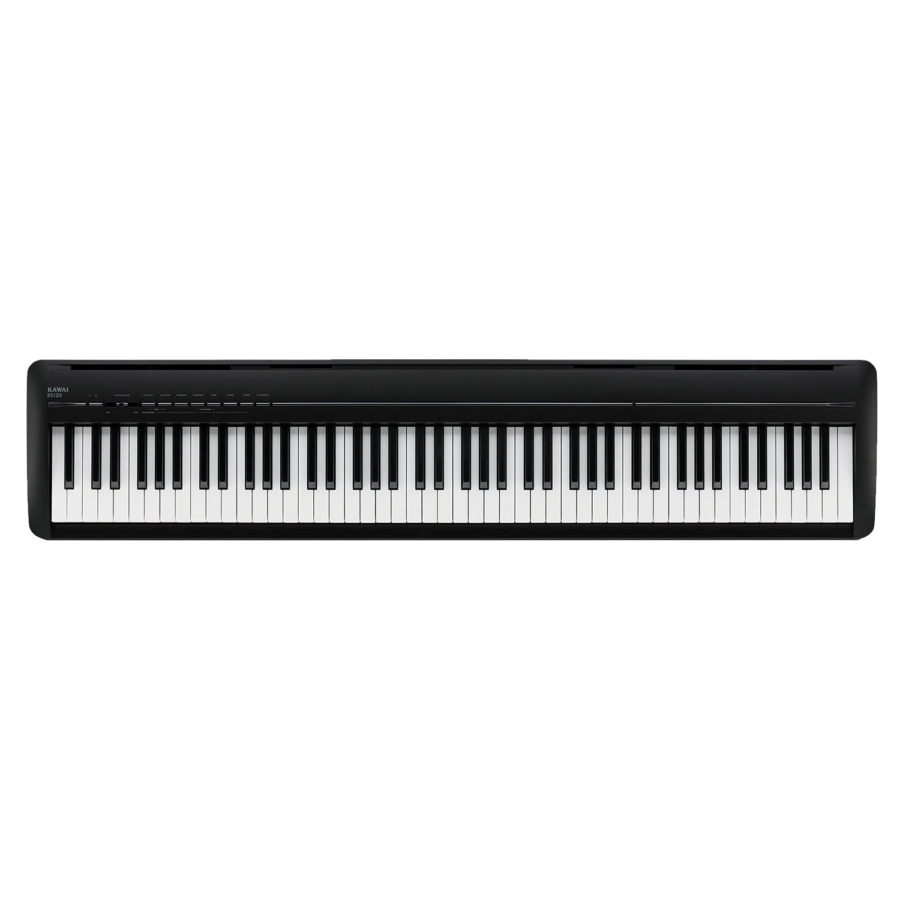
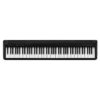
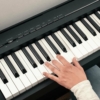
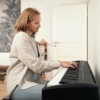
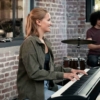
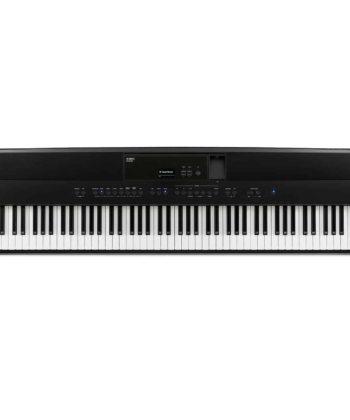
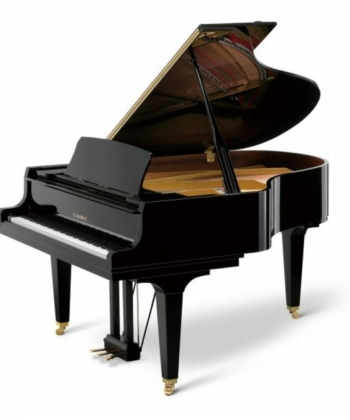
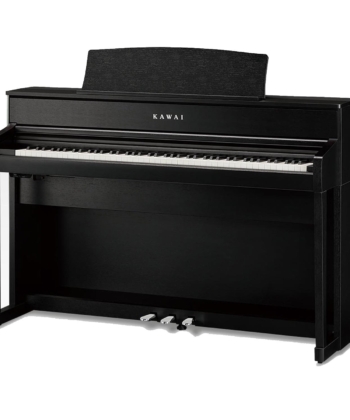
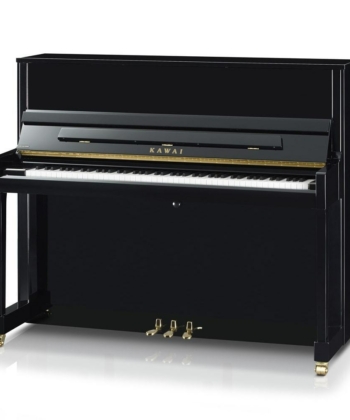


Reviews
There are no reviews yet.